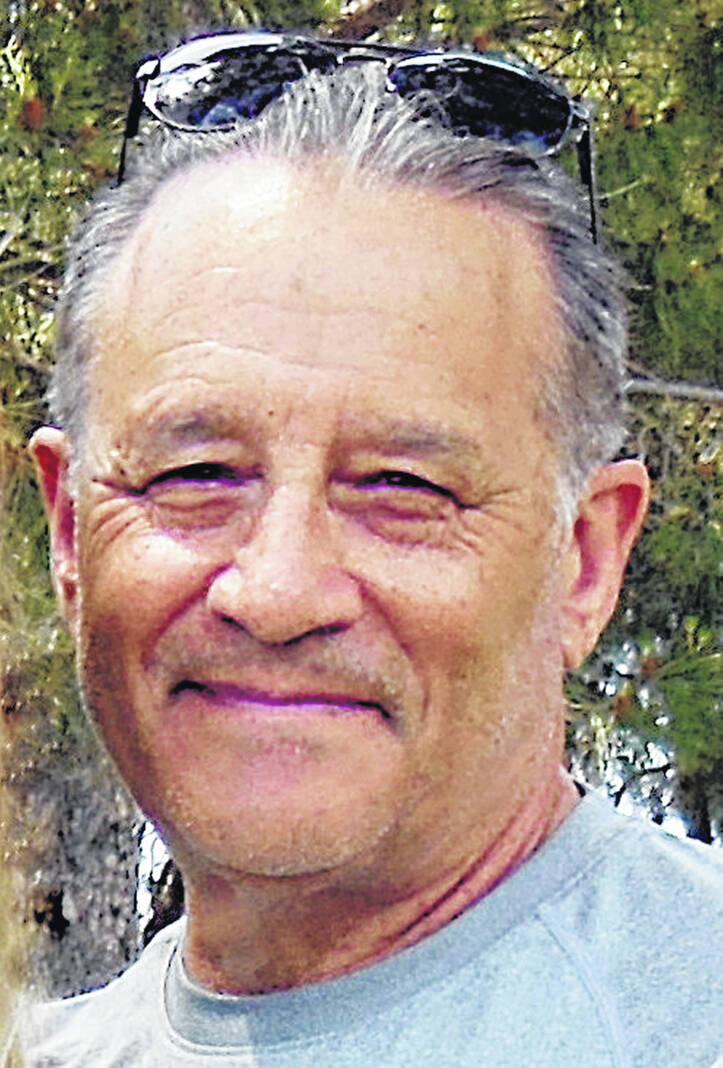
Bill Sims
Contributing columnist
Navigating the seas and shoals of a disruptive pandemic and the wilds of social media, it’s no wonder young people are experiencing stress and anxiety.
Those turbulent seas have included disruptive school closures and if we’ve learned anything over the past millennia, education is the key to well-rounded citizens.
Navigating one’s way into the future hasn’t been helped by the culture wars driven in large part by the parents of these rising young Americans. The toxic environment manifest in this era of political polarization has fouled the nurturing circumstances parents hope for in raising mentally healthy, confident and optimistic young citizens.
Making matters worse has been the exhaustingly imperious nature of social media, a digital world full of the gravitational pull of influencers, unavoidable bullies and seemingly never-ending distractions from purposeful enterprise. Gen Z (1995 to 2010) is the most digitally connected generation our society has ever seen. They grew up with tablets in their hands. Gen Alpha 2010 to 2020s) even more so.
Add to the travails of navigating through these roiling seas the shifting socio-economic circumstances where achieving status in a diminishing middle class is concurrent with an increasing divide between the rich and the poor in America. These precarious financial circumstances along with concerns over the climate state of our planet have led to unpredictable futures, more stress and anxiety, and downstream effects such as lower birth rates and higher suicide rates among our rising generations.
In March, Steven Woolf, director emeritus of the Center on Society and Health at Virginia Commonwealth University, published alarming research in the Journal of the American Medical Association. As reported in the Wall Street Journal: “For decades, advances in health care and safety steadily drove down death rates among American children. In an alarming reversal, rates have now risen to the highest level in nearly 15 years, particularly driven by homicides, drug overdoses, car accidents and suicides. The uptick among younger Americans accelerated in 2020. Though COVID-19 itself wasn’t a major cause of death for young people, researchers say social disruption caused by the pandemic exacerbated public health problems, including worsening anxiety and depression. Greater access to firearms, dangerous driving and more lethal narcotics also helped push up death rates.”
Jim Desmond, former Republican mayor of San Marcos, California and member of the Board of Supervisors for San Diego County, put these social environmental circumstances frankly. “Physicians and public health researchers say that school closures, canceled sports and youth activities and limitations on in-person socializing all worsened a burgeoning mental-health epidemic among young people in the U.S. social media, they say, has helped fuel it by replacing successful relationships with a craving for online social attention that leaves young people unfulfilled and exposes them to sites that glamorize unhealthy behaviors such as eating disorders and cutting themselves.”
What we know for sure about Generation Z, according to the Pew Research Center, is that, “Gen Z is the most digitally connected generation our society has ever seen, (and), “Members of Gen Z are more racially and ethnically diverse than any previous generation, while they are on track to be the most well-educated generation yet. They are digital natives who have little or no memory of the world as it existed before smartphones.”
So, what does all this mean? It’s clear to me that the “Boomer” generation has been insensitive to the needs and changing circumstances of these upcoming Americans. Parents, grandparents, relatives and teachers are by definition mentors and many of us have been remiss in helping our young successfully navigate through these fast-paced and disruptive times. But finding the answers to success are more likely to come from those brought up in these times, unencumbered by the way things used to be. But we elders can help by listening and by being sensibly supportive. Our own adaptive behaviors are important signals.
When I read about high-tech workers intentionally sending their children to low-tech schools, or overwhelmed Gen Zers getting rid of their smartphones to find more serenity in the simplicity of flip phones I become empathetic for all existing generations. As mentors, we can emphasize the importance of real relationships in our lives, the importance of not being indifferent but being proactive in effecting healthy changes to our socio-economic environment, and how working to live trumps living to work in the realm of mental health.
As community and corporate leaders, we also have to be better prepared and responsive to the cultural trends, memes and family needs of these rising generations. They are adept at working remotely. They want more flexibility in their work environments. They are looking for greater balance in their social lives. They are more racially diverse and more intolerant of racial and ethnic biases. They are increasingly in search of meaning and purpose in their work and in their lives. They tend to be turned off by heavy-handed upper management and oppressive work hours that intrude into their families and circadian rhythms. And in the course of planning for their futures, they will fight for living wages. If teacher shortages, programmer shortages and nursing shortages persist, the “free market” will have to pay up to fill these positions with Gen Zers.
Growing up in America has never been more challenging. Yet the African proverb that “It takes a village to raise a child,” is an important lesson as we navigate through these times.
It will take many people “the village,” the parents, grandparents, community leaders, teachers, business leadership, and yes, political leadership, to provide a safe, healthy and promising environment for our rising generations in America to develop and flourish. It’s a responsibility from one generation to the next.
Bill Sims is a Hillsboro resident, retired president of the Denver Council on Foreign Relations, an author and runs a small farm in Berrysville with his wife. He is a former educator, executive and foundation president.

